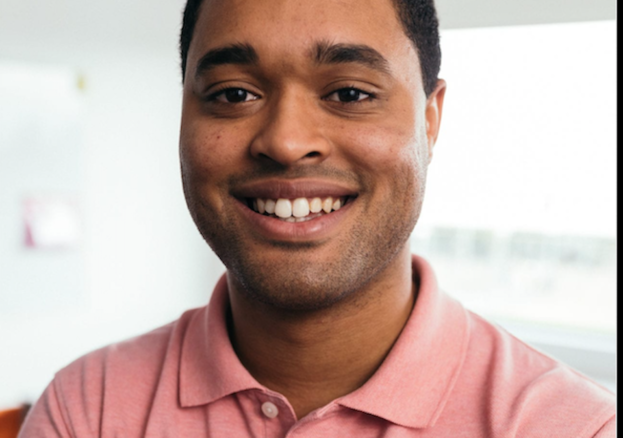
Growing up I would squirm in my assembly hall every year while a teacher announced to the school it was Black History Month. Being one of the very few Black faces in the room, I would think “Why couldn’t Black History Month just fit in like any other part of our wider national story? Why did it need a whole month?”
Looking back now, my discomfort was a result of a false historical narrative depicting people of African descent as silent victims, the patronising tone taken by newscasters when speaking to Black guest contributors and the predictably short-lived interest in Black stories by programme-makers every October. Black history is British history. It is vital to tell the full story. For every Martin Luther King Jr. there is a Dr Harold Moody and for every Rosa Parks, there is an Olive Morris. Black British history is rich, powerful, and awe-inspiring. Black History Month offers the rest of our country the opportunity to understand the stellar contributions made by Britain’s African and Caribbean communities as well as a chance to reflect on our present experiences.
I am an optimistic person. But I understand it is difficult at times to remain so while being young and Black. I haven’t forgotten the dejection I felt when reading The Guardian headline: “HALF OF UK’S YOUNG BLACK MALES ARE UNEMPLOYED” as a 19-year-old history student at the University of Cambridge eight years ago. Despite my strong academic record, it was impossible at the time to not feel these statistical trends would catch up with me, coming from a single-parent background in Mitcham, South London, it felt inevitable.
To ensure targeted change we need data. So, here are the facts:
Black poverty
- 20% of Black families live in persistent poverty. (Institute of Social and Economic Research)
Black wealth gap
- For every £1 that White households have, Black African households have just 10p. For Black Caribbean households, it is around 20p. (Office for National Statistics)
Black attainment gap
- 62% of Black heritage children fail to attain a strong pass in both their Maths and English GCSEs. (Department for Education, 2018)
Black pay gap
- Black graduates earn 23.1% less on average than White workers. (TUC, 2016)
Reading these sobering statistics, the effects of Black educational inequality last a lifetime. Across the pond, a study released last month by Citigroup, a US multinational investment bank, found that systemic racism has cost America $16 trillion over the past 20 years.
For our community, this is not news.
Growing up, my mother instilled self-reliance and educational excellence into me and my five sisters, explaining the difficulties she had in school from entering the schooling system aged 10 as a refugee from the Nigeria Civil War, unable to speak a word of English. When it was time for secondary school, my mother and her Black classmates were enrolled on mass for Home Economics. It was not uncommon for her teachers to take her out of lessons to compete for the secondary school athletics team, even while recovering from surgery during which a lump was removed from her chest.
While experiences like this might seem more at home in the past, I saw as a child first-hand how racism’s pernicious hand shaped my mother’s adult life. I will never forget an estate agent’s surprise that she wanted to buy a flat instead of rent one. While this tense conversation continued, I was even more perplexed by the toy with jet black skin and clown-like red lips sitting on one of his shelves. I learnt after the meeting it was a golliwog – I was ten.
In the immediate aftermath of the brutal murder of George Floyd, I was heartened by the nuanced coverage of the African American experience by British news outlets.
Less than two months later it is business as usual. Research from the Press Gazette found that the UK’s 11 biggest newspapers did not feature a single by-lined Black journalist on their front pages from July 13-19. According to 2015 research from City University London, 0.2% of British journalists are Black. In all walks of life, we must demand action, not words.
The good news is there are solutions. Despite the turmoil of the last few months, I watched with pride at the solutions to institutional inequality led by young, dynamic, and Black changemakers during the Great Lockdown. Highlights include the growing popularity of The Black Curriculum, founded by Lavinya Stennett, the BYP Network’s £840K equity crowdfunding campaign and Marcus Rashford’s inspirational effort to secure free school meal vouchers for 1.3 million children in England during the summer holidays. Our community now more than ever before possesses the digital tools to capture the daily injustices we experience while scaling the solutions to help end the scourge of anti-Black racism.
During this Black History Month, I am looking forward to remembering and celebrating the male and female heroes from the Black British community
while building a better future with my friends, family, and colleagues.
Solomon, 27, is a former secondary school English teacher (Teach First) as well as the founder & CEO of The Student View, a media literacy charity training teenagers across the UK how to spot dis/misinformation and as local news reporters. Earlier this year, he was listed as one of Europe’s brightest entrepreneurs in the 2020 Forbes 30 under 30, Media and Marketing list.
The Student View has won The News/Media Literacy Award category of the 2019 Global Youth & News Media Prize.
